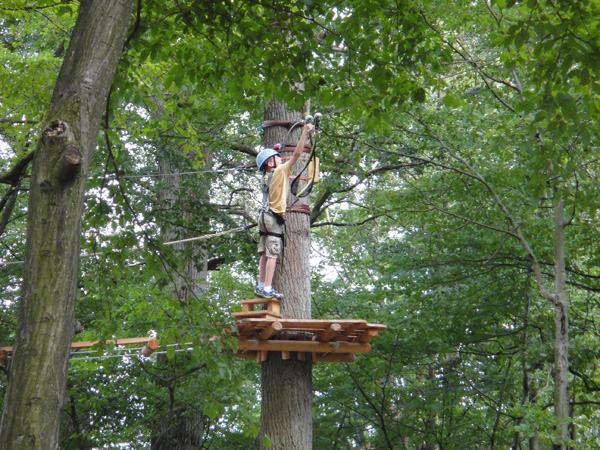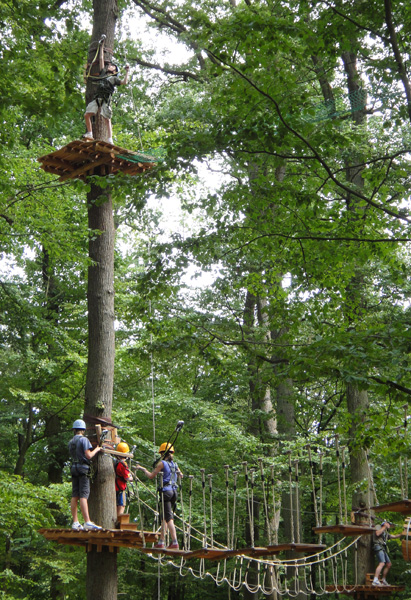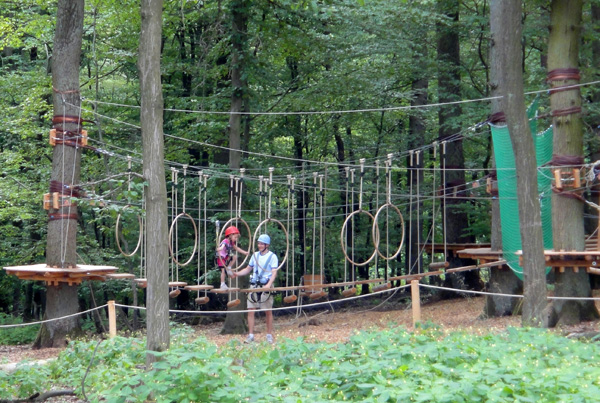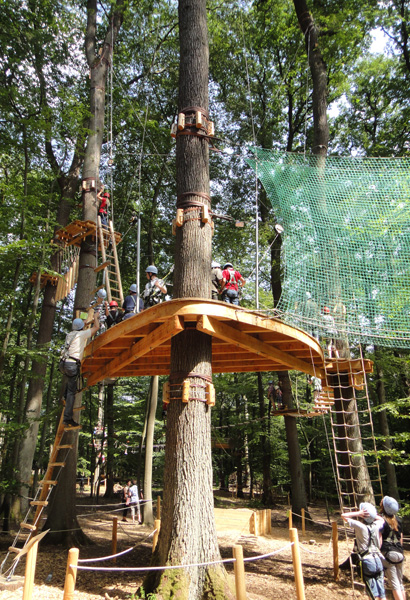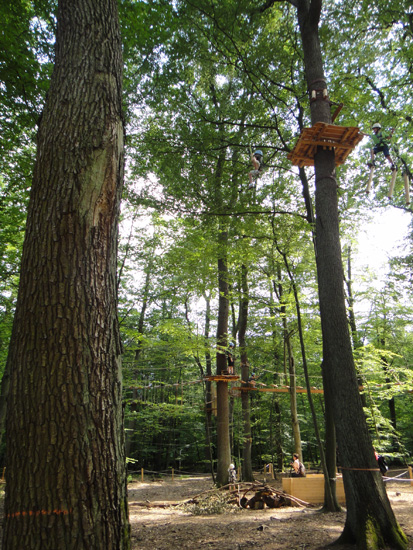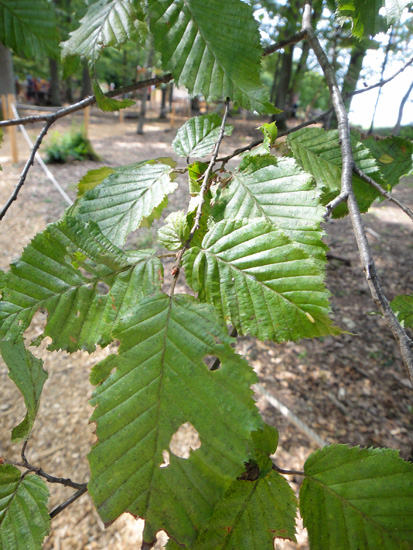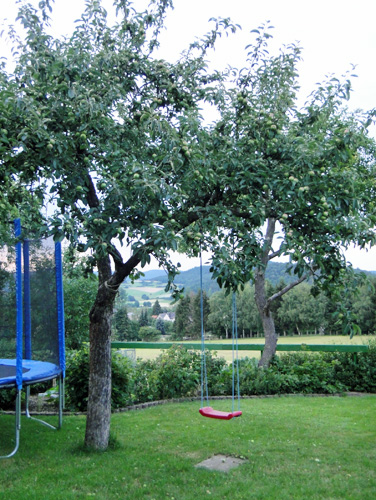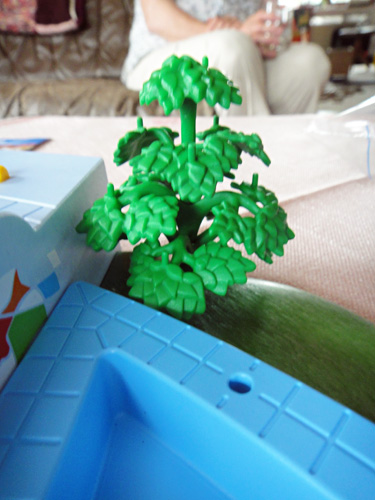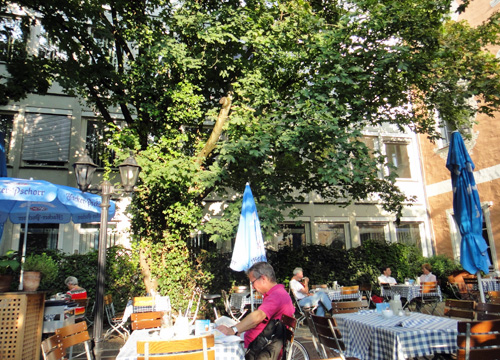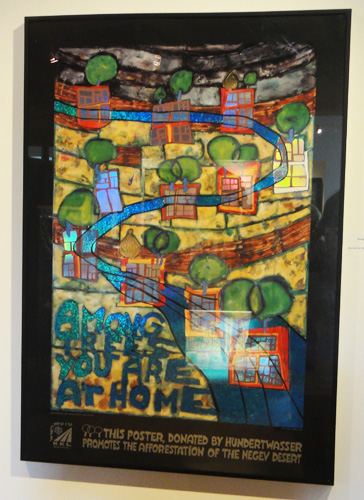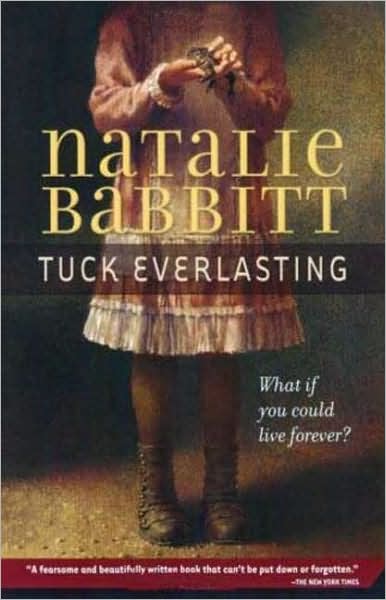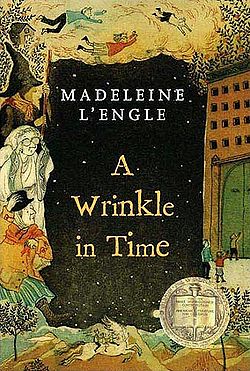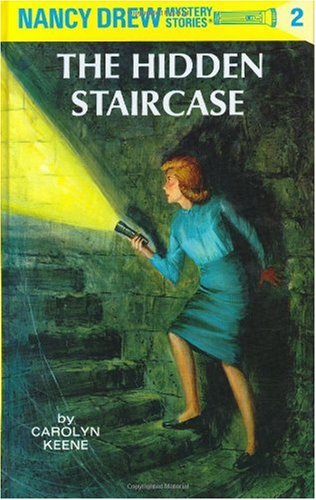The tree blog is back! And we're getting started again with my favorite part, Saturday story time! Today, I have a fabulous book to share: Redwoods by Jason Chin.
by Jason Chin.
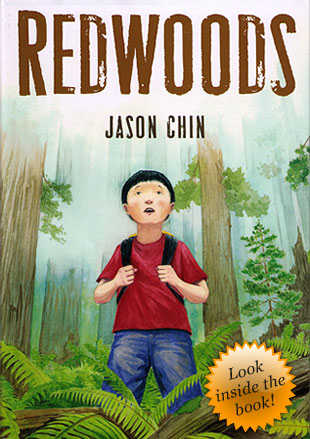
That sticker is no advertising gimmick. This book just begs to be opened. It is beautiful, fantastical, irresitible. Although Chin is writing a non-fiction book, he chooses to use a narrative structure, showing us a young boy who discovers a book - this book - on a bench in the 14th Street subway station.
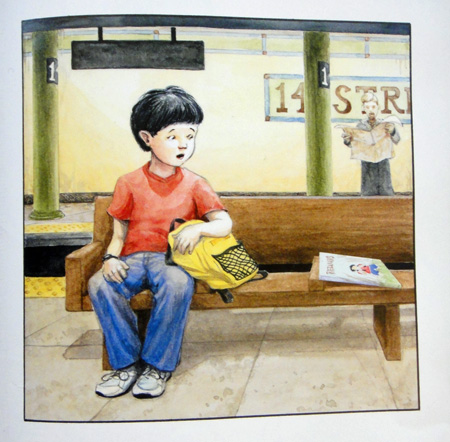
The boy picks up the book, hops on his train, and begins reading.
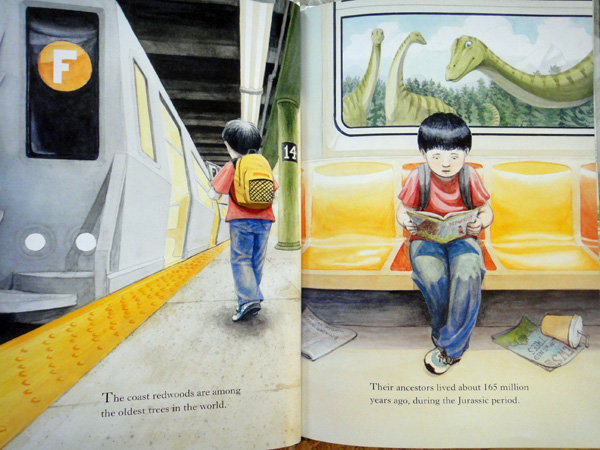
As we read that "the coast redwoods'... ancestors lived about 165 million years ago," we see dinosaurs appear in the window behind the boy. We read that "there are trees alive today that first sprouted during the Roman Empire" and two Roman figures appear next to the boy in the subway car. When he exits his train, we read that "redwoods have shallow root systems," and we see roots creeping down from the subway station ceiling. Step by step, as he progresses in his book, the city is disappearing until the boy comes up out of the subway to find himself in a forest surrounded by the otherworldly trees he's been reading about.
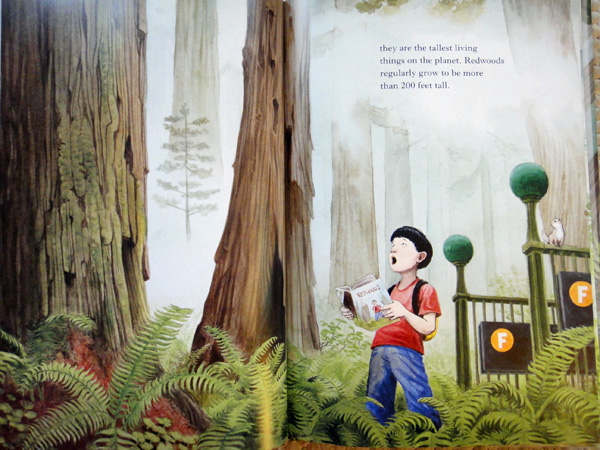
He walks among the trees. He finds a seed, "a one-inch-long cone" that with "enough light and water... can grow fast - up to two feet per year." From down below he experiences the "artificial rain" produced by fog condensing on the needles of the tree, an ingenious way the redwoods get water in the summer months. At the base of one tree, he discovers rope, a helmet, and another book, How to Climb Big Trees. He climbs up into the canopy to explore the trees from above.
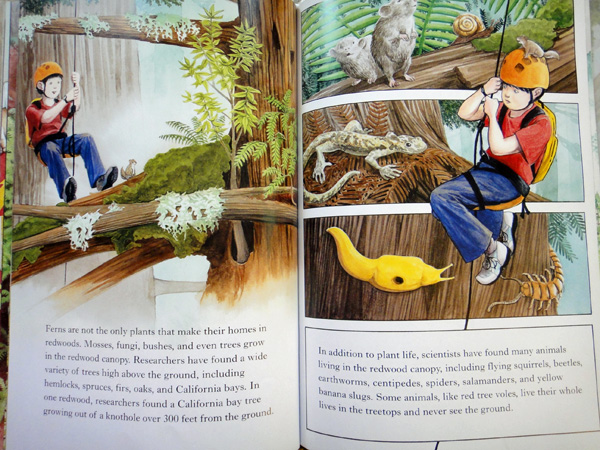
We learn that the soil produced by decaying needles caught between the branches of these enormous trees is rich enough for other plants, and even other trees, to grow in. The boy discovers many animals that live here in the canopy and sees how new trunks grow and crisscross into each other high above the ground. There's a lot of information packed into the middle of the book here. And there needs to be because the end of the book, like the beginning, moves slowly, transporting us this time back to the city. As the boy learns just how tall these giants are, the city starts to return.
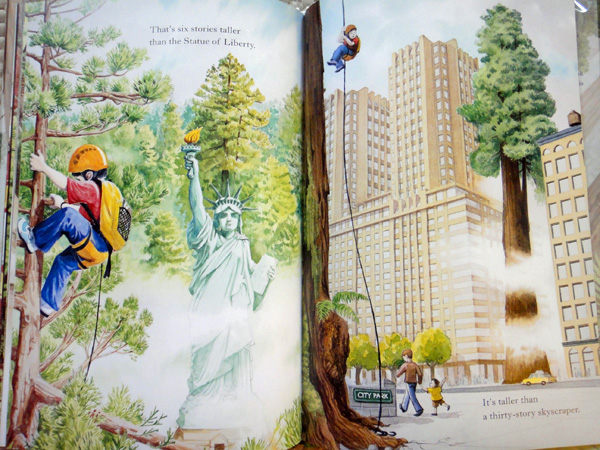
"...six stories taller than the Statue of Liberty...taller than a thirty-story skyscraper..."
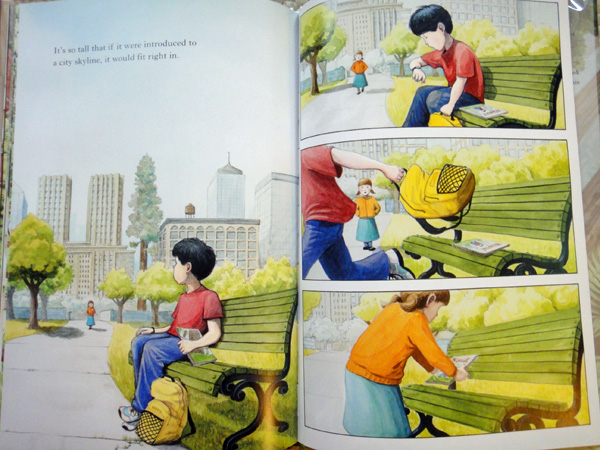
"...if it were introduced to a city skyline, it would fit right in." With these words, the city has returned and the boy is sitting on a city bench, holding the book, and glancing back at the redwood he was climbing just a few pages ago. He looks at his watch and dashes off, leaving the book behind. And when a young girl picks up the book...
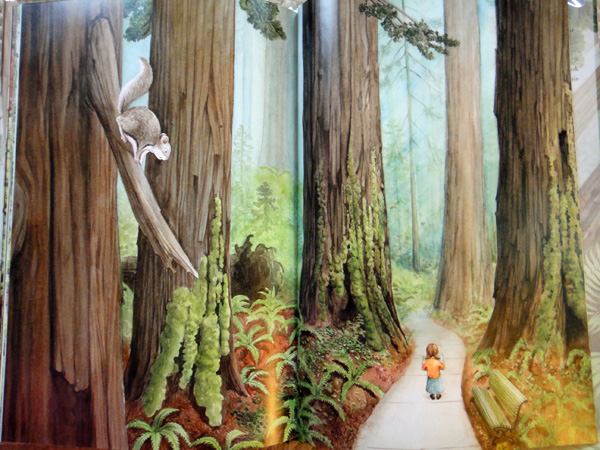
Magic.
A book IS magical; in a book, a boy from the city can take a trip to the redwood forest. And these trees are magical too. You can tell that the author appreciates the magic of both trees and books. Check out an interview with the author where he talks about his inspiration for the book at The Green Guide for Kids and see his pictures from his own trip to the California redwoods on his website.

That sticker is no advertising gimmick. This book just begs to be opened. It is beautiful, fantastical, irresitible. Although Chin is writing a non-fiction book, he chooses to use a narrative structure, showing us a young boy who discovers a book - this book - on a bench in the 14th Street subway station.

The boy picks up the book, hops on his train, and begins reading.

As we read that "the coast redwoods'... ancestors lived about 165 million years ago," we see dinosaurs appear in the window behind the boy. We read that "there are trees alive today that first sprouted during the Roman Empire" and two Roman figures appear next to the boy in the subway car. When he exits his train, we read that "redwoods have shallow root systems," and we see roots creeping down from the subway station ceiling. Step by step, as he progresses in his book, the city is disappearing until the boy comes up out of the subway to find himself in a forest surrounded by the otherworldly trees he's been reading about.

He walks among the trees. He finds a seed, "a one-inch-long cone" that with "enough light and water... can grow fast - up to two feet per year." From down below he experiences the "artificial rain" produced by fog condensing on the needles of the tree, an ingenious way the redwoods get water in the summer months. At the base of one tree, he discovers rope, a helmet, and another book, How to Climb Big Trees. He climbs up into the canopy to explore the trees from above.

We learn that the soil produced by decaying needles caught between the branches of these enormous trees is rich enough for other plants, and even other trees, to grow in. The boy discovers many animals that live here in the canopy and sees how new trunks grow and crisscross into each other high above the ground. There's a lot of information packed into the middle of the book here. And there needs to be because the end of the book, like the beginning, moves slowly, transporting us this time back to the city. As the boy learns just how tall these giants are, the city starts to return.

"...six stories taller than the Statue of Liberty...taller than a thirty-story skyscraper..."

"...if it were introduced to a city skyline, it would fit right in." With these words, the city has returned and the boy is sitting on a city bench, holding the book, and glancing back at the redwood he was climbing just a few pages ago. He looks at his watch and dashes off, leaving the book behind. And when a young girl picks up the book...

Magic.
A book IS magical; in a book, a boy from the city can take a trip to the redwood forest. And these trees are magical too. You can tell that the author appreciates the magic of both trees and books. Check out an interview with the author where he talks about his inspiration for the book at The Green Guide for Kids and see his pictures from his own trip to the California redwoods on his website.
